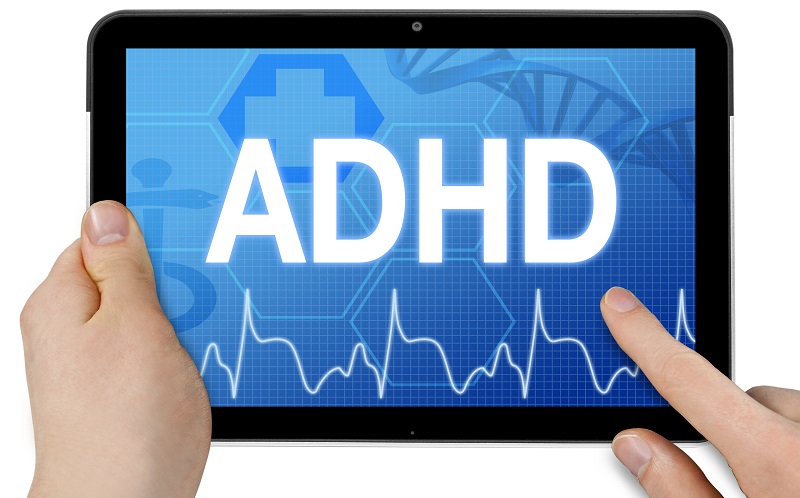Attention Deficit Hyperactivity Disorder

Attention Deficit Hyperactivity Disorder is one of the most common and most studied neurodevelopmental disorders in children. It is viewed as a long term chronic brain disorder that contributes to executive function problems.
Children who suffer from an Attention Deficit Hyperactivity Disorder exhibit a range of worrisome symptoms. These children are described as inattentive and distractible; they exhibit short attention spans and often appear hyperactive and show poor impulse control.
Young people with attention problems show difficulties in the following areas:
- Selective/Focused Attention.
- Shifting Attention.
- Sustained Attention.
- Attentional Capacity.
Children who show signs of Attention Deficit Hyperactivity Disorder can exhibit problems in one or more of these areas. They require individualized help to address their particular profile of strengths and weaknesses across these areas of deficit. In addition to problems with attention and hyperactivity they may show difficulties managing their behaviors, controlling their moods and with organization, concentration, following directions and sitting still.
Some consider "Attention" as the foundation of all higher order processing.
In order to regulate thinking and to complete tasks of daily living,
including learning tasks at school, it is necessary to attend to both
auditory and visual stimuli. Children who can't attend will have
difficulty coping with a range of activities, especially at school.
Problems with attention can adversely affect cognitive processes that are critical to success at school.
These include problems remembering, comprehending and following through
with various classroom and school related activities.
Conversely, attention problems may be secondary to a range of neurocognitive concerns.
These
include memory problems, difficulties processing language and/or
verbal/auditory material, as well as mental health concerns like
anxiety, depression and PTSD, or other trauma related conditions.
Symptoms of Attention Deficit Hyperactivity Disorder
- Inattention: The child has problems listening, is easily distracted and fails to persist with activities or finish tasks.
- Impulsivity: The child acts without thinking and has difficulty controlling her impulses (e.g. blurts out answers; has problems taking turns).
- Hyperactivity The child moves about, plays with things, appears restless and has problems sitting still.
- To meet the diagnosis of an attention deficit disorder the symptoms the young person shows must have begun in childhood, and typify the child's behaviors across various settings, including at school, within the community and at home.
- Research suggests that 3-5% of children suffer from Attention Deficit Hyperactivity Disorder.
- However, many believe this disorder is over-diagnosed in children, and/or not assessed properly.
Some children who are diagnosed with Attention Deficit Hyperactivity Disorder are mainly inattentive.
They do not exhibit highly elevated levels of impulsivity or hyperactivity, nor are they
atypically disruptive. However, they have difficulty attending to academic and
other tasks. Conversely there are children who show predominant problems with hyperactivity, and limited problems with attention. There are those children who are labelled a combined type and who show elevated concerns related to both attention and hyperactivity.
Parents report that children who show attention problems move rapidly from one activity to another and do not listen or attend to what others are saying. Teachers complain that children with attentional difficulties show poor attention to directions, limited concentration and off-task behavior. They also report that these children have difficulty with sustained attention and focus. Children who show high levels of hyperactivity show problems sitting still, they fidget and have difficulty controlling their emotions and behaviors.
Click here, to learn more about Attention Deficit Hyperactivity Disorder
Evidence Based Interventions
Evidence Based Interventions for children with ADHD include:
Behavioral Interventions
- Behavior Modification
- Parent Training and Behavioral Management
- Classroom Interventions\
Educational Interventions
- Executive Function Skills Training
- Academic Support, Accommodations and Modifications
- Individual Education Programs (IEPs)
- Study Skills and Organizational Skills
Complementary and Alternative Interventions
- Mindfulness and Relaxation Techniques
- Exercise and Physical Activity
- Dietary Interventions
Best Practices for Implementing Evidence Based Interventions
- Collaborating with a Multidisciplinary Team
- Monitor Progress and Make Adjustments as needed.
- Involving Caregivers and Students in the Intervention Process
Click here to learn more about evidence based interventions for children who suffer from ADHD.
Understanding the Problem is the Key to Solving It

A School Neuropsychological Assessment Can Help
Dr. O'Connor's school neuropsychological assessments zero in on the issues
that are of particular concern for the young person, in this case the ADHD symptoms he or she shows. The school neuropsychological assessment becomes a part of the solution, and leads to evidence based interventions to address the young persons specific concerns as these apply to their ADHD diagnosis.
Dr. O'Connor's psychological assessments sharpen the focus or "open a
window" on the young person's strengths and specific needs. You
will have a clearer picture of how the child, adolescent or young person
is doing across various developmental and/or neuro-cognitive domains,
and the kind of interventions that can help address the concerns he or she shows.
The comprehensive school neuropsychological assessment helps determine whether the young person's problems with attention and hyperactivity relate to ADHD, or are secondary to other neurocognitive
processing issues, such as memory problems, or mental health problems
like anxiety, depression and/or post traumatic stress.